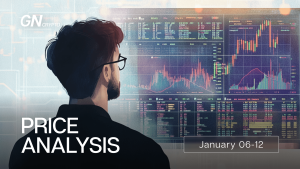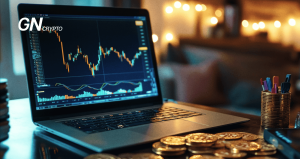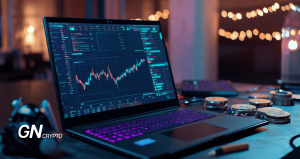Why is crypto going down despite the good news?

One type of fundamental analysis is predicting the crypto price with the news.
On this page
Traders monitor news and events to predict a potential token rise based on positive news. However, this approach does not always work.
There are many examples where a positive event did not affect the price in the same way:
· Ethereum and The Merge update. The price fell by 10 % right after the blockchain's successful transition to the PoS algorithm;
· CHZ and fan tokens. Despite the national teams' successful performances during the 2022 FIFA World Cup, CHZ, ARG, and other national team tokens decreased in price;
· Bitcoin and the inflation rate. When the CPI indicator shows positive dynamics, theoretically, BTC should rise, but the crypto market falls.
The Ethereum Classic situation provided a particularly clear illustration of this paradox. Miners started looking for new blockchains to work with as a result of Ethereum switching to a PoS model, and the majority of them started to mine ETC. Theoretically, this should have resulted in a spike in activity, but after September 15th (the day of Ethereum's Merge) the price of Ethereum Classic dropped by 40%.
Traders monitor news and events to predict a potential token rise based on positive news. However, this approach does not always work. There are many examples where a positive event did not affect the price in the same way: · Ethereum and The Merge update. The price fell by 10 % right after the blockchain's successful transition to the PoS algorithm; · CHZ and fan tokens. Despite the national teams' successful performances during the 2022 FIFA World Cup, CHZ, ARG, and other national team tokens decreased in price; · Bitcoin and the inflation rate. When the CPI indicator shows positive dynamics, theoretically, BTC should rise, but the crypto market falls. The Ethereum Classic situation provided a particularly clear illustration of this paradox. Miners started looking for new blockchains to work with as a result of Ethereum switching to a PoS model, and the majority of them started to mine ETC. Theoretically, this should have resulted in a spike in activity, but after September 15th (the day of Ethereum's Merge) the price of Ethereum Classic dropped by 40%. ETC price reaction before and after The Merge
The root of the problem is that traders wrongly interpret the most active times in the markets. The news is frequently worked out at the time of the event itself. However, the price usually rises before that due to inflated expectations. If we examine the examples given, things went like this:
· Fan tokens and the Socios platform's CHZ token increased in price in the months before the 2022 World Cup;
· Ethereum and tokens based on the PoW algorithm (Ethereum Classic, Ravencoin) increased by 200 % in the month before The Merge;
· Bitcoin has risen by 3-5% as a result of bullish predictions for future inflationary publication.
CHZ price reaction before and after the World Cup
When the crypto market is most uncertain, buyers are most active. Many traders plan for the long run and buy tokens several months before the update, then sell them at the highest price.
But this strategy sometimes fails. It is important to differentiate regular news from true fundamental factors that further drive price growth.
A weekly token burn, for instance, will not raise the asset price because there is little interest in this event. However, over time, this will result in a shortage of coins and a decrease in supply, which logically should drive up the price.
Both the credit and inflation rates follow the same pattern. Due to the current high level of market activity, BTC responds in the short term with significant volatility and illogical behavior, but if the positive or negative trend persists, Bitcoin will respond accordingly.
The content on The Coinomist is for informational purposes only and should not be interpreted as financial advice. While we strive to provide accurate and up-to-date information, we do not guarantee the accuracy, completeness, or reliability of any content. Neither we accept liability for any errors or omissions in the information provided or for any financial losses incurred as a result of relying on this information. Actions based on this content are at your own risk. Always do your own research and consult a professional. See our Terms, Privacy Policy, and Disclaimers for more details.



























